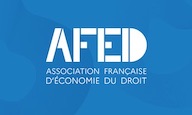This paper empirically investigates the effect of political pressure on the use of discretionary adjudication procedures in public procurement using data from Italian municipalities for the period 2009-2016. I exploit the presence of a new political party, the 5 Star Movement, through matching estimators. Results show that probity-based political opposition is associated with a 4-7% average treatment effect on the treated on the probability of using formal procedures when negotiated procedures are available. The evidence is compatible with two possible explanations, namely bureaucratic defensive strategies and reduced relational contracting or favouritism. However, repeated cross-section regressions using the main indicators proposed by the literature to account for political competition do not show effects. I argue that either (a) the entry of an external actor disturbed an equilibrium built on ‘sharing compromising information' (Gambetta, 2018); (b) third-parties opportunism (Spiller, 2008) limits well-intentioned public administrators.
- Poster

 PDF version
PDF version

